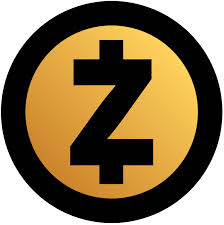Privacy coins represent a unique class of cryptocurrencies designed to ensure complete anonymity by using sophisticated cryptographic methods to obscure transaction details from the public. Unlike Bitcoin, Ethereum, and other digital currencies, privacy coins do not disclose the sender’s and recipient’s addresses, transaction amounts, or wallet balances.

Prominent privacy coins include Monero (XMR), Zcash (ZEC), Dash (DASH), Horizen (ZEN), Verge (XVG), Beam (BEAM), and Grin (GRIN).
The Pros and Cons of Privacy Coins
Bitcoin initially promised anonymity and privacy, but its transactions have become increasingly traceable through blockchain analysis tools, especially after regulatory authorities mandated KYC (Know Your Customer) compliance for cryptocurrency exchanges. Katie Haun, a former prosecutor now a crypto venture capitalist, noted, “Without the technology underlying bitcoin, we never would have been able to catch those people,” highlighting how blockchain can aid in tracing criminal activities.
Despite potential misuse, privacy coins strive to provide greater financial autonomy and privacy for everyday users.
Privacy coins offer significant benefits, including enhanced financial privacy, robust security, and resistance to censorship. These features allow investors to evade transaction tracking and surveillance. While this can be exploited by criminals, it also serves citizens in authoritarian or repressive regimes. For instance, in China, where spending on non-essentials can lead to penalties, privacy coins enable discreet transactions. Additionally, privacy coins help protect against data breaches, which have surged in recent years.
The Risks Associated with Privacy Coins
Despite their advantages, privacy coins face scrutiny from financial regulators due to their potential misuse for illegal activities. They are outright banned in Japan and cannot be traded on crypto exchanges in South Korea. Although still legal in the United States and the European Union (EU), these coins are under close watch, with potential restrictions looming due to anti-money laundering (AML) concerns. In 2023, leaked documents revealed that the EU was considering banning banks and crypto services from dealing with privacy coins.
To avoid regulatory complications, some major cryptocurrency exchanges have delisted privacy coins, impacting their liquidity. For instance, Binance removed Monero from its platform earlier in 2024.
Consequentially, this makes investing in privacy coins a risky endeavor.
Leading Privacy Coins
Here are some of the top privacy coins based on popularity and market capitalization:
Monero (XMR)
Monero is one of the pioneering privacy coins and boasts the largest market cap, exceeding $3.1 billion as of mid-June 2024. It employs ring signatures and stealth addresses to obscure the identities of senders and recipients. Ring signatures blend users into a “ring,” making it difficult to discern who signed a transaction. Security addresses generate a unique address for each transaction, further enhancing privacy. However, Monero faces challenges in 2024, with delistings from Binance and Kraken blocking its use in Ireland and Belgium.
Zcash (ZEC)
Launched in 2016 by the Electronic Coin Company (ECC), Zcash is notable for being the first to implement zk-SNARK technology, which verifies transaction validity without revealing transaction details. Despite its innovative approach, ZEC has experienced a decline in price and fees over the past few years due to regulatory pressures. According to Token Terminal, weekly fees have plummeted from several thousand in 2018 to just over $200 today. Similarly, the token’s price has dropped from $884 in 2018 to around $20, with a market cap of $336 million.
Dash (DASH)
Although Dash is less anonymous than Monero or Zcash, it enhances privacy with its PrivateSend feature, which mixes transactions. The price of Dash has plummeted from over $1,100 in 2018 to $23 in June 2024. While Bitcoin has surged by about 5,000% since 2017, Dash has dropped by 45%, losing its correlation with Bitcoin and barely registering on market charts.
Can Privacy Coins Endure?
Privacy coins face significant regulatory pressure in key jurisdictions, making them less appealing for long-term investors, despite their support for individual privacy rights.
Nonetheless, their robust technology ensures they will remain operational in the future. While governments cannot completely shut down privacy coins, they can restrict their liquidity sources.
Conclusion
Despite offering advantages such as financial privacy, security, and resistance to censorship, privacy coins encounter substantial regulatory hurdles that deter investors. The market for these coins is strained by delistings and legal pressures, impacting the price performance of major privacy coins. Although their use for legitimate privacy concerns is justified, the association with illicit activities and ongoing regulatory scrutiny cast doubt on their long-term viability.
Learn from market wizards: Books to take your trading to the next level

 Hot Features
Hot Features

















